
It’s better to know – Making sure your private well water is safe
By Catherine DeLong, Water Quality Program Manager with Iowa State University Extension and Outreach Spring in Iowa is a great time to watch the Redbud Trees bloom, listen to the hypnotic sound of frogs – and if you’re a private well owner – test your drinking water quality. The #1 responsibility of the 230,000 Iowans…
Read More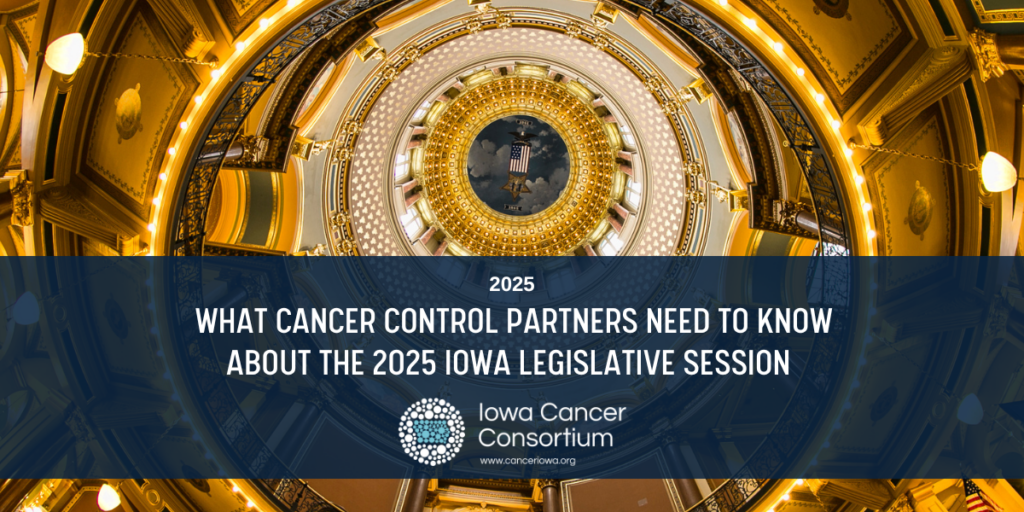
What Cancer Control Partners Need to Know about the 2025 Iowa Legislative Session
Post-second-funnel update: April 7, 2025 Dear Iowa Cancer Consortium members and partners, The second Iowa legislative “funnel” deadline was this past Friday, April 4. This means that to stay viable, most bills must pass out of the full House or Senate and out of a sub-committee and full committee in the other chamber. Bills that…
Read More
Meet Courtney Dage, Practicum Student
Hello! My name is Courtney Dage, and I am excited to begin my practicum experience at the Iowa Cancer Consortium this spring! For my project, I will be assisting with the Cancer in Iowa: 99 Counties Project by developing a toolkit for county public health and healthcare organizations that contains relevant resources and best practices…
Read More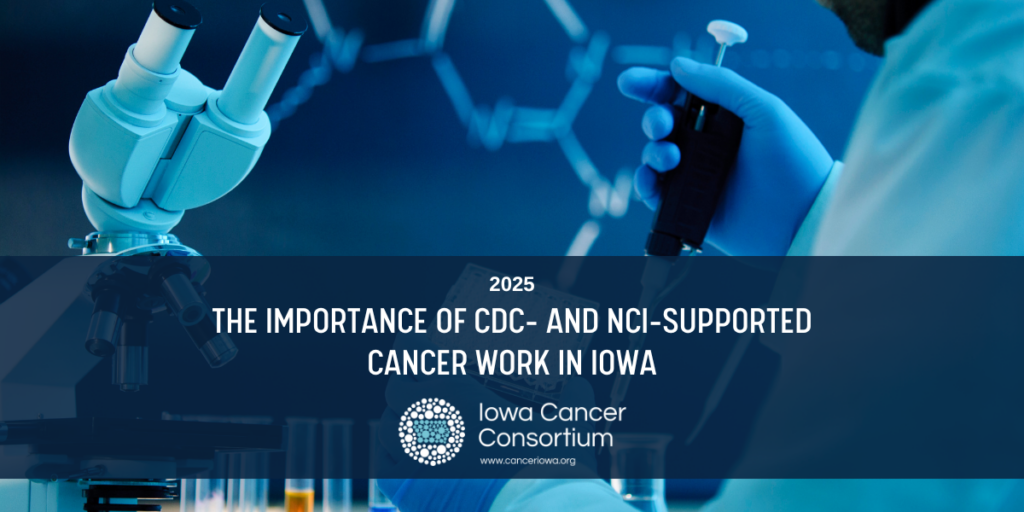
The Importance of CDC- and NCI-Supported Cancer Work In Iowa
With the incoming presidential administration’s plans to create a Federal Department of Government Efficiency with a focus on eliminating duplication, there will likely be more scrutiny on federal program funding. These talking points can help cancer control partners and policymakers understand and explain the differences between cancer programs and grants at the National Cancer Institute…
Read More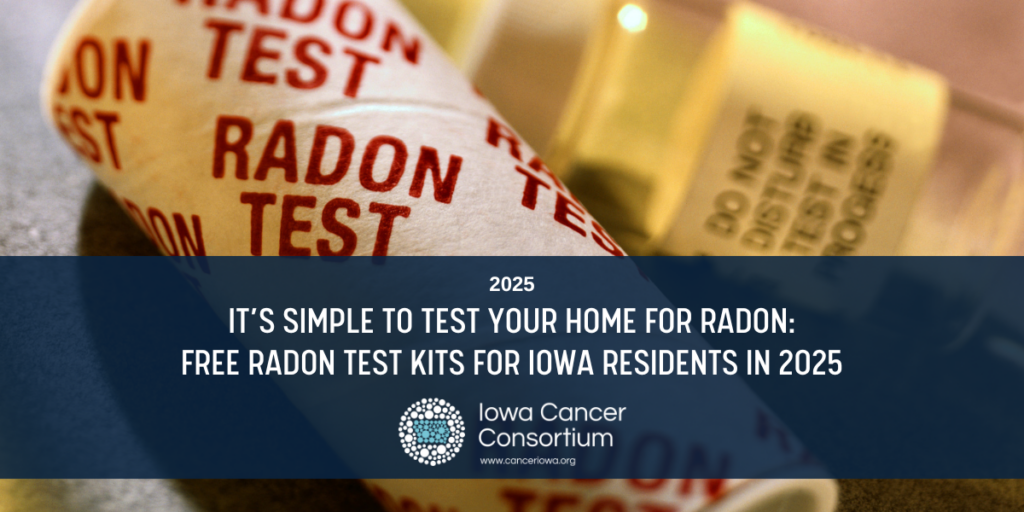
It’s Simple to Test Your Home for Radon: Free Radon Test Kits for Iowans in 2025
1/13/25 Update: The American Lung Association (ALA) is out of free test kits at this time. Contact your county’s public health department to see if they offer free or discounted test kits. Otherwise, they can be purchased from ALA or any hardware store. Written by Jill Heins-Nesvold, American Lung Association On average, Americans spend 90% of…
Read More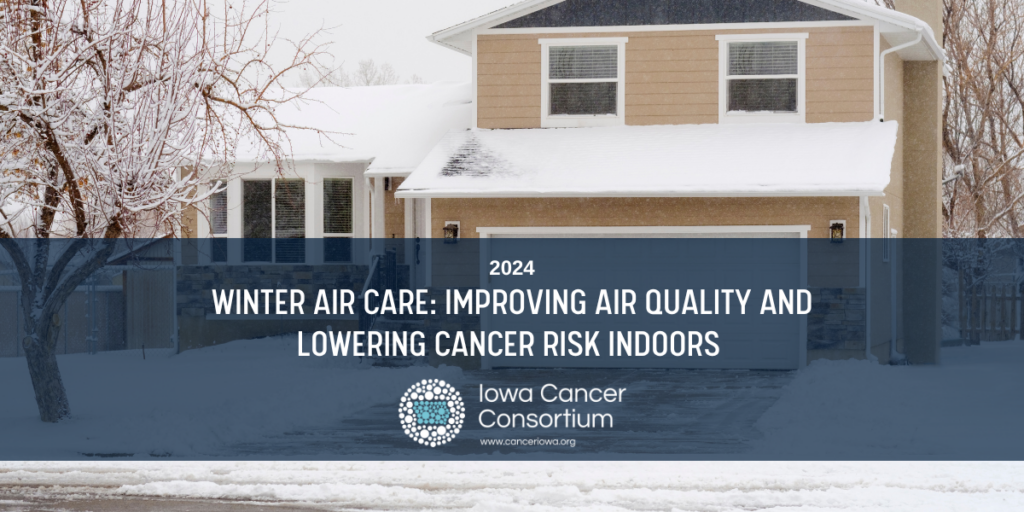
Winter Air Care: Improving Air Quality and Lowering Cancer Risk Indoors
According to the U.S. Department of Energy, Americans spend about 90% of their time indoors in schools, workplaces, restaurants, shops, homes, places of worship, or elsewhere. The everyday spaces we spend time in become even more important during the winter months as we escape cold weather. The U.S. Environmental Protection Agency (EPA) cautions that as…
Read More
Disability & Cancer: A Health Equity Issue
This week on December 3rd, the world recognized International Day of People with Disabilities – a day to celebrate the Disability community and advocate for equity. In Iowa, an estimated one in four adults have a disability (27.9% according to the 2022 Iowa BRFSS), and that number is growing. The Iowa Cancer Consortium would like…
Read More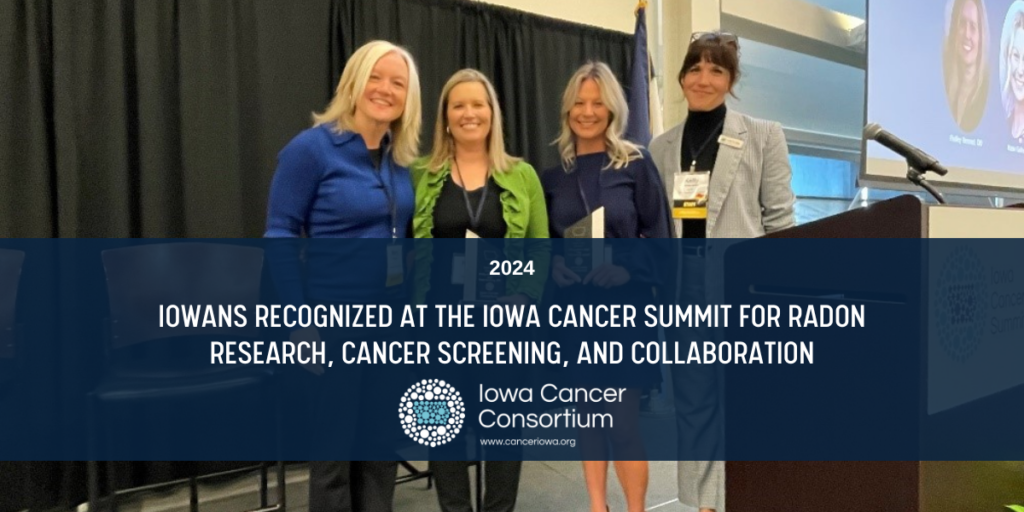
Iowans Recognized at the Iowa Cancer Summit for Radon Research, Cancer Screening, and Collaboration
Coralville, IA – October 22, 2024 – Nearly 300 people convened in Ankeny this month for the Iowa Cancer Summit. While much emphasis was placed on Iowa’s high and growing cancer rates (Iowa is second-in-the-nation for cancer incidence, behind only Kentucky, according to the Iowa Cancer Registry), there was time to celebrate what Iowa is…
Read More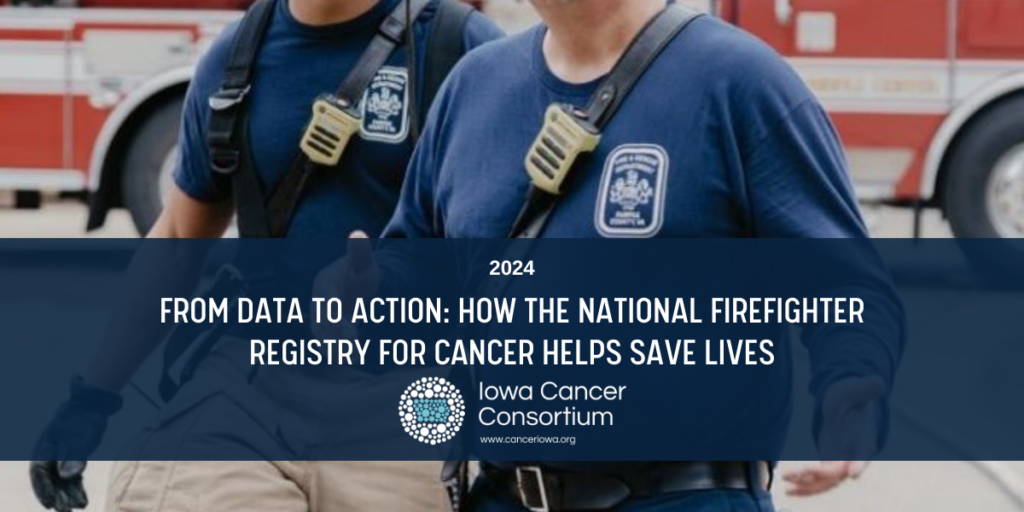
From Data to Action: How the National Firefighter Registry (NFR) for Cancer Helps Save Lives
Firefighters are brave individuals in our communities who put their lives on the line to protect us from fires and other emergencies. Whether volunteer or career, firefighters and their families dedicate their lives to service, especially in rural communities. To help understand and address the unique health risks associated with smoke, chemical, and hazardous materials…
Read More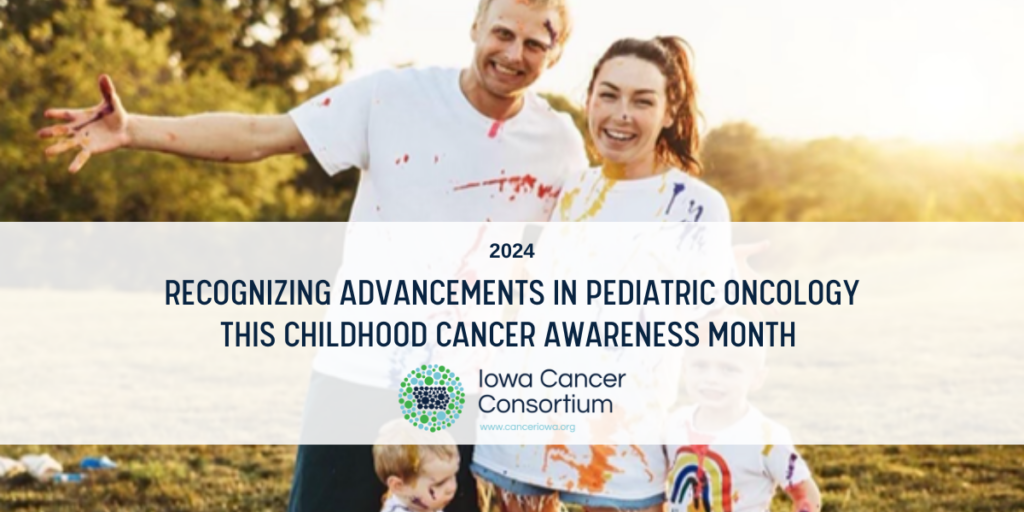
Recognizing Advancements in Pediatric Oncology this Childhood Cancer Awareness Month
Written by Natalie Steuer Gold is a precious metal, and it symbolizes the most precious thing in life—our children. Gold is the official color for all childhood cancers, and September is Childhood Cancer Awareness Month. Childhood Cancer Awareness Month holds great significance as cancer still remains the leading cause of death by disease for children…
Read More